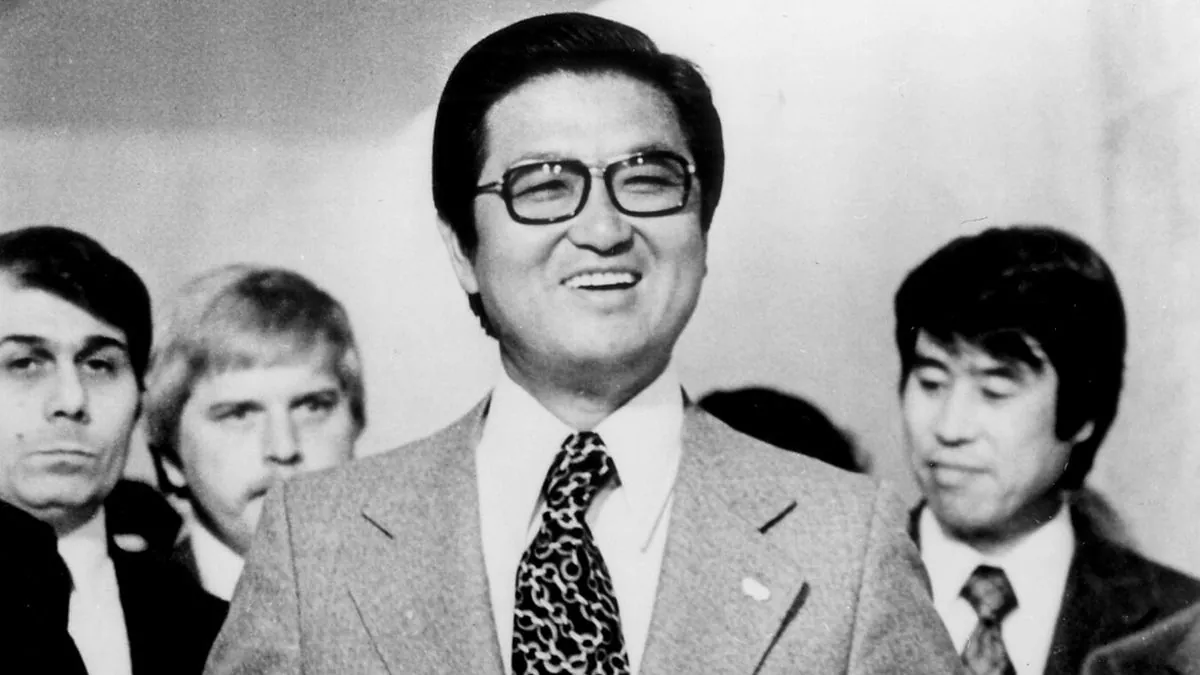Tongsun Park, a South Korean businessman who gained notoriety for his involvement in two major political scandals, passed away on September 19, 2024, at a hospital in Seoul. He was 89 years old. Park's family confirmed his death to the South Korean news agency Yonhap, citing a chronic illness as the cause.
Park's life was marked by a meteoric rise in Washington D.C.'s social and political circles, followed by two significant falls from grace. Born on March 16, 1935, in Japanese-occupied Korea, Park's journey to the United States began when he attended high school in Seattle. He later graduated from Georgetown University's School of Foreign Service in 1963, one of the world's leading international affairs institutions.
In 1966, Park opened the George Town Club in Washington D.C.'s historic Georgetown neighborhood. The exclusive social club quickly became a hub for celebrities and politicians, hosting notable figures such as Frank Sinatra and prominent political leaders including House Speaker Carl Albert and Majority Leader Thomas P. "Tip" O'Neill Jr.
Park's rise to prominence was accompanied by a lavish lifestyle, including a chauffeured limousine and two homes on Embassy Row, an area known for its diplomatic residences. However, his success story took a dark turn in the 1970s with the emergence of the Koreagate scandal.
Federal investigators uncovered evidence that Park was acting on behalf of South Korea's intelligence agency in a scheme to influence U.S. politicians. In 1977, the Justice Department indicted Park on 36 felony counts, including bribery and failing to register as a foreign agent under the Foreign Agents Registration Act.
Park initially fled the country but later returned to testify before the House Ethics Committee in exchange for immunity. He claimed to have given approximately $850,000 to 31 current and former members of Congress. Despite the scandal's media attention, only one congressman was convicted in connection with Koreagate.
"I thought I was taking part in the American political process. So far as I was concerned, I was helping congressional friends who were loyal to me."
Nearly three decades later, Park found himself embroiled in another scandal. In 2005, he was implicated in a bribery scheme related to the United Nations oil-for-food program in Iraq. This program, which ran from 1995 to 2003, was established to mitigate the effects of international sanctions imposed on Iraq following its invasion of Kuwait in 1990.
Park admitted to accepting over $2.5 million from Iraq as part of a plan to bribe UN officials involved in the program. In 2007, U.S. District Judge Denny Chin sentenced Park to prison for his role in the scandal, stating that he had "acted out of greed."
Following his release from prison in 2008, Park returned to South Korea. Despite the scandals that marred his reputation, he maintained a connection to Washington D.C., occasionally hosting parties and reflecting on his experiences in the city.
Park's life serves as a cautionary tale about the intersection of business, politics, and international relations. His involvement in two major scandals spanning different decades highlights the persistent challenges of maintaining ethical standards in global affairs.
